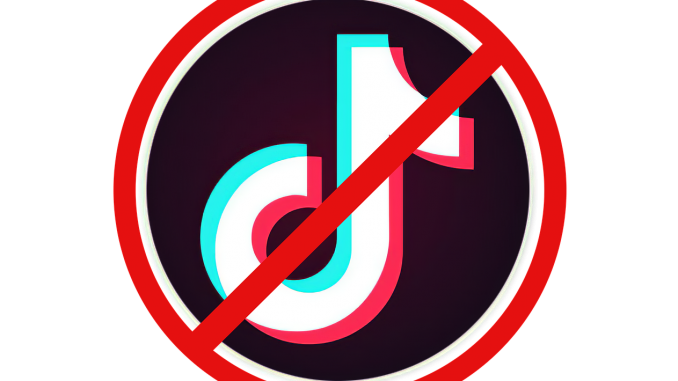
Donald Trump’s short career as a politician has in large part been defined by his ability to control narratives using social media, most notably via his Twitter handle. This year, however, he appears to have been outmaneuvered by a new platform with an audience very different from the one he has cultivated up until now: TikTok, a viral video network dominated by Gen Z.
After TikTok users helped sabotage Trump’s June rally in Tulsa, his efforts to force the brand’s sale to a US firm – and now most recently to bar US companies from doing business with it – have only increased TikTok’s notoriety. The platform has been in the administration’s crosshairs since June 11, when the Trump reelection campaign Twitter account called on supporters to register for free tickets for the planned rally. The information was then shared by K-pop fan accounts on TikTok, encouraging followers to register for the rally only to stay home on the day of the event. The trend quickly spread on the network, with videos with similar instructions garnering millions of views and “K-pop stans” quickly emerging as standard bearers for progressive activism online.
The TikTok Tulsa troll put the Trump campaign in a bind, with surrogates struggling to defend the lacklustre turnout. The platform’s notoriety has increased exponentially since then, to the point of executive orders by Trump threatening to ban the Chinese-owned app from operating in the US unless it was sold by its parent companies – a move that has been described by one pundit as “Mafia-like” behaviour, but which has only cemented TikTok’s prominence as a rising social media star.
Not that the platform needed the boost. TikTok, as well as services like Twitch and Houseparty, all emerged as the great beneficiaries of the Covid-era lockdowns, with teens and 20-somethings stuck at home using the platforms as both outlets for expression and as a way to pass the time.
“My housemates – who I’m in lockdown with – thought it was pathetic that I joined TikTok and started making videos,” said Hannah Baker, a recent TikTok convert, to ABC News in Australia. It wasn’t long, however, before those housemates agreed to make a video together, as have countless families stuck in lockdown around the world. Today, all of Baker’s housemates are TikTok users in their own right.
Indeed, video-based apps have experienced the sharpest surge in usage since the pandemic took hold in the US, with an incredible 79% jump in Houseparty usage since the start of March. While only a mid-tier video app in 2019, Houseparty has become a virtual living room for when users check out of their Zoom virtual office, or even a blending of both for users experiencing “Zoom fatigue.”
The networks’ growth has put “legacy” social networks on notice, with rivals like Instagram now racing to catch up. With TikTok wading through a regulatory nightmare, Instagram has seized the opportunity to release a direct competitor to the app, Reels, launching in more than 50 countries this week.
As on TikTok, users can use Reels to create 15-second videos designed to be shared easily. Users can also sync their video recordings to music and sound recordings, and add effects like augmented reality filters. If the story of Instagram Stories and Snapchat is anything to go by, Reels could be a household name by the end of the year.
Even so, TikTok and Houseparty are far from the only “new” social networks to be embraced by teens and young adults confined by stay-at-home restrictions. France’s Yubo, which is specifically designed with a teenage user base in mind, also saw exponential growth in both the size of its community and in time spent on the platform.
Yubo’s success is driven in no small part by its refreshingly careful treatment of younger users. While other social media platforms like TikTok and Instagram battle controversy over child safety concerns, Yubo has tackled the issue head on by developing algorithms capable of intervening when underage users move into inappropriate territory. At the same time, age-verification algorithm Yoti allows Yubo moderators to “age-gate” the community, separating under-18s and over-18s via verification of their ID credentials.
Moreover, in the context of the current social upheaval over racial inequality in the US, Yubo has become a hub for youth activism. A survey of Yubo users found that 88% of respondents saw Black Americans as being treated differently than others, while 83% felt US police use too much force. More than a third of those polled by Yubo identify as white, almost a fifth of respondents identified as Black/African, and a further fifth as Hispanic/Latinx.
There can be little doubt that 2020 has been a turning point on multiple levels. From the death of more than 160,000 Americans due to Covid so far, to the equally tragic death of George Floyd in police custody, young people are more politically aware than ever before – and they are turning to social media platforms for self-expression in droves. Whether established social media platforms like Facebook or Instagram can reconnect with a “woke” and outspoken Gen Z remains to be seen.
Indeed, with traditional online giants like Facebook coming under increasing public scrutiny for their approaches to dealing with data usage, privacy, and disinformation, the world of online social networks could be on the cusp of a major shakeup. The newest generation of users, at least, has already decided where it wants to spend its time online.


Leave a Reply